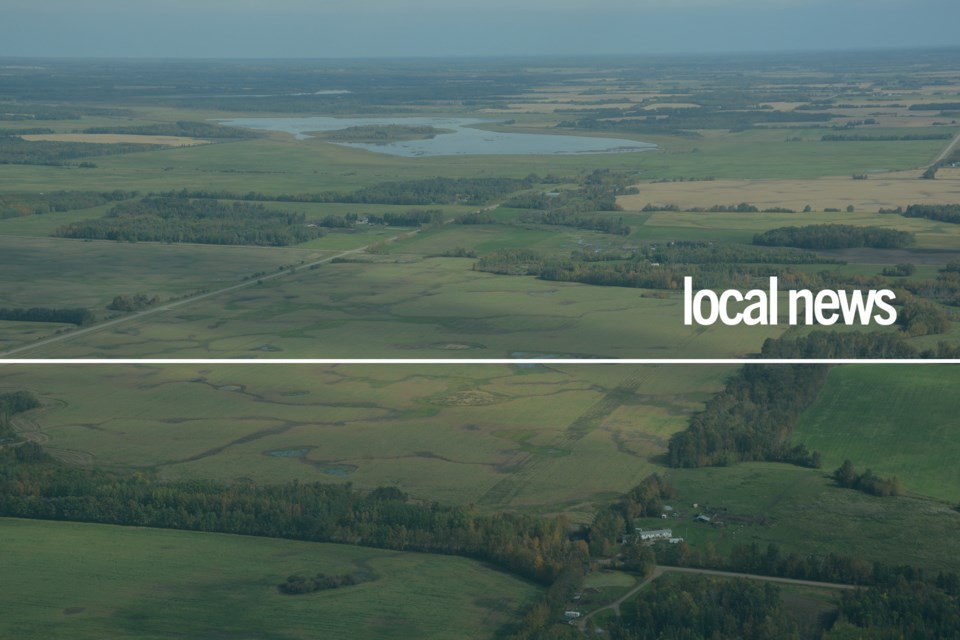Premier Danielle Smith has hit a nerve with locals.
Two social media posts by The Gazette asking St. Albertans about their thoughts on Smith’s promised inflation relief money had drew more than 200 comments.
On Nov. 22, Smith in a televised address to Albertans announced the Inflation Relief Act which will include families, seniors, and those with disabilities receiving $600 over the course of six months.
In the address, Smith said the payments will be “targeted toward middle income families with household incomes below $180,000.”
Lori Williams, a political science professor at Mount Royal University said the Inflation Relief package addresses some top priorities for Albertans which she said include affordability, healthcare, education, and “more broadly” economy and diversification.
“We've known about (the package) and that it's coming for a while. There are I think some questions about the timing (and) the fact that this is only in place until the next election,” Williams said.
Williams said most Albertans seeing a cheque coming in every month between now and the next election will be appreciative.
“Particularly those who are at the lower end of that income threshold that we're looking at,” she said.
However, Williams does say there are legitimate questions about whether a household income of $180,000 really qualifies as financial need and there are questions about who is getting the money and why.
When asked how Smith’s promised money is similar to the money former Premier Ralph Klein gave to all Albertans in 2006 — the $400 one-time payment to all Albertans carrying the moniker of “Ralph bucks” — Williams said it’s similar in the sense that is money being paid to Albertans “to sort of ingratiate the government to the voters.”
“The difference is that it was $400 for every single Albertan for Ralph Klein. This is targeted pretty clearly to the voters that are likely to vote — are more likely to be persuaded to vote for the UCP and it's not a single check. It's monthly cheques between probably about January and the next election,” she said.
Whether leaving out money for single people would harm Smith in the next election, Williams said those single folks are less likely to vote for her government anyway.
“It raises questions about whether the real motive is to help struggling Albertans since you know somebody working minimum wage is going to be in much more difficult shape than a family that earns underneath $180,000 and has two kids. The family with two kids is going to get $1,200 And the person working minimum wage is going to get nothing,” she said.
Williams said the government is saying those people will get relief in the form of the suspended fuel tax and utility rebates.
As part of the inflation package, Smith said the province will suspend the fuel tax for the next six months and will “make the current fuel relief program permanent thereafter.”
The province will also be increasing the rebate on consumer electricity bills to a total of $200 per household and Smith said the government will “limit spikes in winter electricity rate while continuing with the current natural gas rebate program.”
These relief packages leave out renters and those who don’t drive, said Williams — however, there might be relief for non-drivers as the government has promised to expand low-income transit passes.
“I think there's a legitimate question to be raised amongst those people and perhaps Albertans more broadly, questions about whether in fact, this is about helping those most in need or helping the government get re-elected,” she said.
St. Albert resident Jordan Lamb, 26, doesn’t have children and will not be receiving any money from the province.
Lamb doesn’t have any qualms about the household income cut-off.
“I think it’s just right to be honest. With how expensive things are these days people who make $90-100,000 aren’t really as rich as they used to be,” he said.
Lamb said it may be an attempt to buy votes, but it is nice to see the province giving people a bit of a break.
He doesn’t, however, think the money will help with inflation.
“Governments around the world printed so much money during the pandemic ... That’s what caused inflation and the whole world is doomed for a generation (because) of it,” he said.
Lamb said for him, as a “single dude” who lives with his parents he does like that Smith has promised to suspend the fuel tax.
As for what could have been done instead, Lamb has some ideas.
“I’m just going to say, reinstating the caps on utility rates and auto insurance would do far more to help people than giving people a couple hundred bucks,” he said.
B. Anderson., who did not want her name used as she is looking for a job, has strong opinions about the inflation package.
“It's crap. It's a slap in the face to those of us who A) don't have kids or B) make too much money or C) don't qualify for anything that she's given,” she said.
Anderson is 35, married, and renting, her job loss in October has impacted her household income. She and her husband will benefit from the electricity rebates and from the gas tax being cut, but Anderson said inflation is still impacting them.
“Smith should have looked at something that benefited everyone…just, like, give money to everybody. Just be fair at this point we're all struggling with inflation. It's not fun,” she said.
Anderson's biggest concern about the money being given out to select Albertans is that the help is not going to people who could really use it
“I think that she's trying to fix the gouging wound with a band-aid and that's not helping.”




